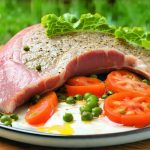The digestive system is a remarkably adaptable machine, constantly adjusting to the influx of food we provide it with. However, even this resilient system can be thrown off balance by seemingly innocuous habits. One increasingly common phenomenon is experiencing loose stools or diarrhea after consistently consuming numerous small meals throughout the day. This isn’t necessarily indicative of illness; often, it’s a direct consequence of how our bodies respond to frequent stimulation of the digestive process without adequate rest periods. We are conditioned to believe that ‘grazing’ – eating constantly – is healthy, but for many individuals, this approach can lead to surprisingly disruptive gastrointestinal effects.
This article will delve into the reasons why eating too many small meals can cause loose bowel movements, exploring the physiological mechanisms involved and offering insights into how to modify dietary habits to promote a healthier, more comfortable digestive experience. It’s important to understand that individual responses vary greatly; what triggers issues for one person may not affect another. This is about understanding the potential connection between frequent eating and digestive distress, rather than diagnosing or treating any specific condition. We’ll explore how meal timing, portion sizes, and food choices all play a role in maintaining a balanced gut.
The Digestive Cascade & Frequent Stimulation
Our digestive system operates on a rhythmic cycle. When food enters the stomach, it initiates a cascade of hormonal signals and muscular contractions designed to break down the food and move it through the intestinal tract. This process, known as migrating motor complex (MMC), is crucial for clearing undigested food and maintaining gut health. The MMC typically kicks in between meals when your digestive system is at rest. However, introducing another small meal before the MMC has completed its cycle effectively restarts the entire process, preventing full cleansing and potentially overwhelming the system.
Think of it like repeatedly hitting the snooze button on an alarm clock – you’re constantly interrupting a natural restorative process. Frequent eating doesn’t give your gut time to rest and recover, leading to persistent stimulation. This can manifest as increased intestinal motility (the speed at which food moves through the digestive tract), which often results in looser stools. Essentially, the intestines are always working, never fully relaxing or completing their cleaning cycle.
Furthermore, consistently triggering insulin spikes with small, frequent meals—even if those meals consist of seemingly healthy foods—can also contribute to digestive upset. Insulin resistance, over time, can impact gut motility and overall digestion. The body’s constant effort to process these smaller portions may leave less energy for other vital functions, including optimal digestion. If you frequently experience issues after meals, it might be a sign of cramping and flatulence related to fat intake.
Portion Size & Digestive Capacity
Beyond the frequency of eating, the size of each meal also plays a significant role in digestive health. Our digestive systems are designed to handle larger volumes of food at once, rather than constant trickles. Smaller portions may seem less demanding but can actually disrupt the natural digestive rhythm more significantly than larger, infrequent meals. This is because the body allocates resources differently based on anticipated workload. A large meal signals a substantial digestive task, prompting the release of appropriate enzymes and hormones to efficiently process the food.
Smaller meals, conversely, may not trigger this robust response, leading to incomplete digestion and potential malabsorption. The gut attempts to compensate by speeding up the transit time – moving things along faster – which can result in loose stools. This is particularly true if those small meals are high in carbohydrates or simple sugars, as these foods are digested quickly and can draw water into the intestines, further contributing to looseness. It’s also worth noting that chewing thoroughly is essential for proper digestion; smaller, hastily consumed meals often lack adequate mastication which hinders initial breakdown of food. You might find a connection between this and stool softening if you also consume cold foods.
Identifying Your Personal Threshold
Determining your personal tolerance level for frequent small meals requires some self-observation and experimentation. There isn’t a one-size-fits-all answer, as factors like metabolism, activity level, stress levels, and underlying health conditions all play a role. Here’s how to start:
- Keep a Food Diary: Track everything you eat and drink for at least a week, noting the time of day, portion sizes, and any associated digestive symptoms (bloating, gas, stool consistency).
- Pay Attention to Timing: Note how long after eating you experience any changes in bowel movements. This can help pinpoint whether frequency is the issue or specific foods within those small meals.
- Experiment with Intervals: Gradually increase the time between meals and snacks. Start by adding an hour or two, then assess how your body responds.
The Role of Fiber & Hydration
Fiber plays a crucial role in regulating bowel movements and overall digestive health. However, consuming too much fiber without adequate hydration can actually exacerbate loose stools when combined with frequent eating. Fiber absorbs water, so if you’re not drinking enough fluids, the stool can become bulky but still watery. This is especially true for soluble fiber found in foods like oats and beans.
Conversely, insufficient fiber intake can also contribute to digestive issues. A balanced approach is key: aim for a consistent intake of both soluble and insoluble fiber, paired with sufficient water consumption throughout the day. Consider these points:
- Hydration First: Prioritize drinking enough water (aim for at least eight glasses daily) before increasing your fiber intake.
- Gradual Increase: If you’re adding more fiber to your diet, do it gradually to allow your digestive system time to adjust.
- Food Sources: Focus on obtaining fiber from whole foods like fruits, vegetables, and whole grains rather than relying solely on supplements. Experiencing issues with digestion after meals? You may be experiencing digestive confusion related to temperature of the food.
Modifying Dietary Patterns for Improved Digestion
The goal isn’t necessarily to eliminate small meals entirely, but rather to optimize your eating patterns to support healthy digestion. Here are some strategies you can implement:
- Prioritize Larger Meals: Shift towards consuming fewer, more substantial meals each day. Aim for three well-balanced meals with minimal snacking in between.
- Time Your Meals Strategically: Allow sufficient time between meals (at least 2-3 hours) to allow the MMC to function properly and clear the digestive tract.
- Focus on Whole Foods: Emphasize whole, unprocessed foods that are naturally rich in fiber and nutrients. Avoid highly processed snacks and sugary drinks.
- Mindful Eating: Practice mindful eating techniques – chewing your food thoroughly, eating slowly, and paying attention to hunger and fullness cues. This helps optimize digestion and prevents overeating.
- Consider Intermittent Fasting (with caution): For some individuals, incorporating periods of fasting into their routine can allow the digestive system ample time to rest and reset. Always consult with a healthcare professional before starting any new dietary regimen. You might also find that loose stools are triggered by certain fruits after meals.
Ultimately, understanding the connection between frequent small meals and loose bowel movements is about recognizing the intricate relationship between food, digestion, and your body’s natural rhythms. By making mindful adjustments to your eating habits, you can promote a healthier gut and improve your overall well-being. Remember that consistency and self-awareness are key – pay attention to how different foods and patterns affect your body, and adjust accordingly. If morning meals cause issues, it might be related to loose stools from oil. It’s also important to consider if you’re experiencing cramping while standing during or after meals, as this could indicate a deeper issue. And finally, be mindful of digestive issues from meal types.


















